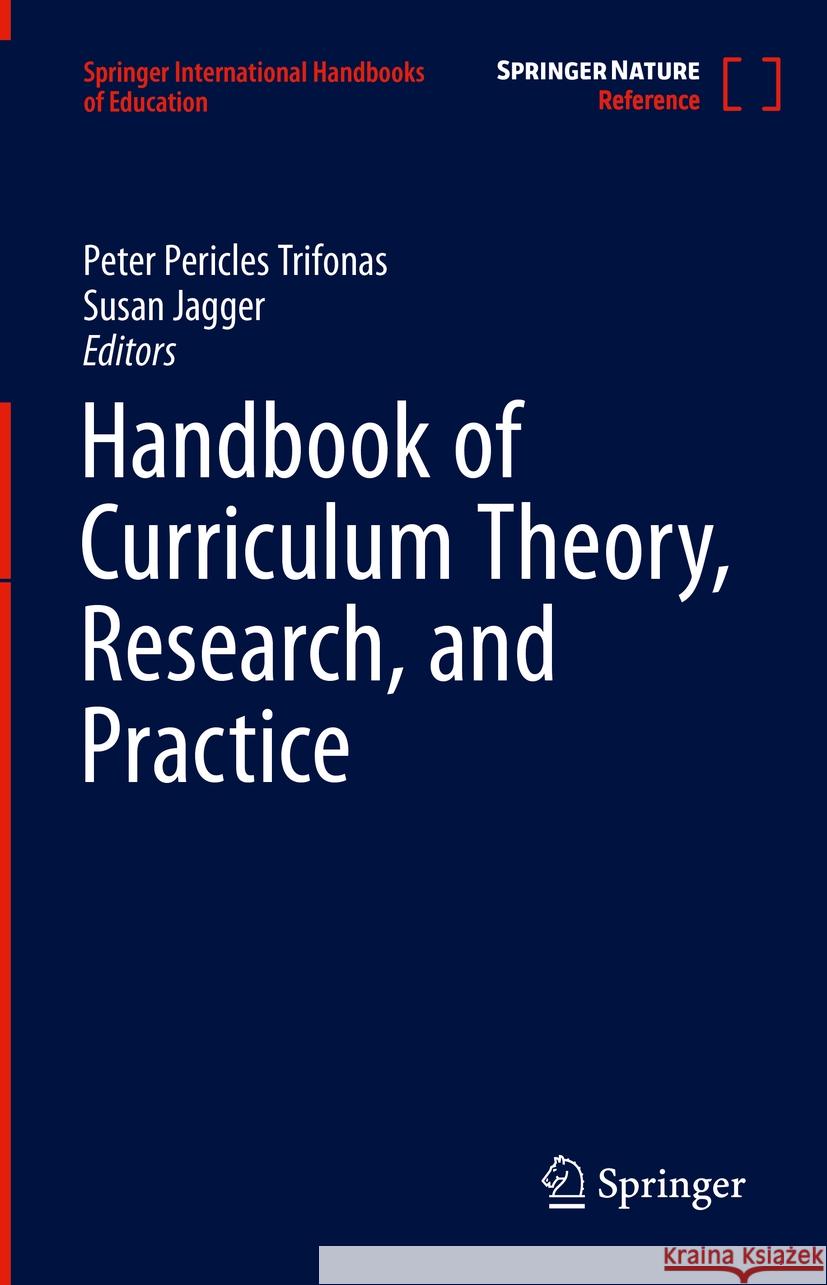Handbook of Curriculum Theory and Research » książka
Handbook of Curriculum Theory and Research
ISBN-13: 9783031211546 / Angielski / Twarda / 2024 / 1000 str.
This Handbook paints a portrait of what the international field of curriculum entails in theory, research and practice. It represents the field accurately and comprehensively by preserving the individual voices of curriculum theorist, researchers and practitioners in relation to the ideas, rules, and principles that have evolved out of the history of curriculum as theory, research and practice dealing with specific and general issues. Due to its approach to both specific and general curriculum issues, the chapters in this volume vary with respect to scope. Some engage the purposes and politics of schooling in general. Others focus on particular topics such as evaluation, the use of instructional objectives, or curriculum integration. They illustrate recurrent themes and historical antecedents and the curricular debates arising from and grounded in epistemological traditions. Furthermore, the issues raised in the handbook cut across a variety of subject areas and levels of education and how curricular research and practice have developed over time. This includes the epistemological foundations of dominant ideas in the field around theory, research and practice that have led to marginalization based on race, class, gender, sexuality, ethnicity, age, religion, and ability. The book argues that basic curriculum issues extend well beyond schooling to include the concerns of anyone interested in how people come to acquire the knowledge, skills, and values that they do in relation to subjectivity and experience.
This Handbook paints a portrait of what the international field of curriculum entails in theory, research and practice. It represents the field accurately and comprehensively by preserving the individual voices of curriculum theorist, researchers and practitioners in relation to the ideas, rules, and principles that have evolved out of the history of curriculum as theory, research and practice dealing with specific and general issues. Due to its approach to both specific and general curriculum issues, the chapters in this volume vary with respect to scope. Some engage the purposes and politics of schooling in general. Others focus on particular topics such as evaluation, the use of instructional objectives, or curriculum integration. They illustrate recurrent themes and historical antecedents and the curricular debates arising from and grounded in epistemological traditions. Furthermore, the issues raised in the handbook cut across a variety of subject areas and levels of education and how curricular research and practice have developed over time. This includes the epistemological foundations of dominant ideas in the field around theory, research and practice that have led to marginalization based on race, class, gender, sexuality, ethnicity, age, religion, and ability. The book argues that basic curriculum issues extend well beyond schooling to include the concerns of anyone interested in how people come to acquire the knowledge, skills, and values that they do in relation to subjectivity and experience.











